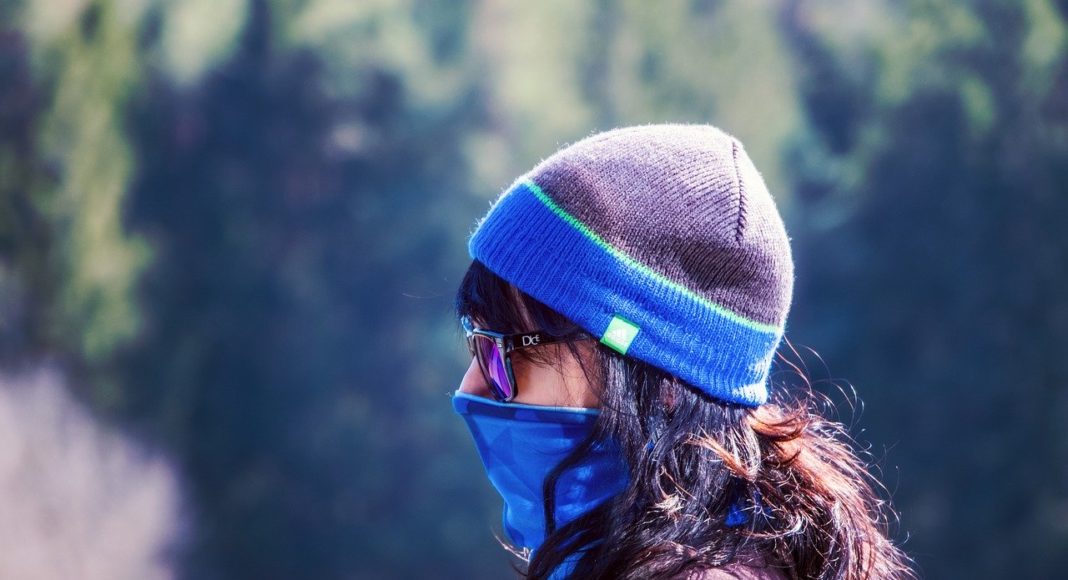We are in Wallowa County, in the northeastern corner of Oregon, where my grandparents lived and my parents grew up, as well as the longtime site of the family cabin. We’re close to Seattle, but strangely across a cultural divide.
It’s chilly here. Down to freezing last night. We’re at 4,500 feet. I’d say the snow level is at 5,500′ so not far above us. Today we’ve had a few flurries, a couple of hail storms and every now and again a couple rays of sunshine. Our little wood burning stove is keeping us cozy.
Neither the chilly weather nor the pandemic seem to be keeping folks from the usual Memorial Day weekend. While the State Park, with the largest campground, is closed, both of the privately owned RV parks are full for the weekend. Trucks pulling trailers are rolling in, some with boats behind. Fishing season is open. It is bear hunting season as well. Several guys in camo at the hardware this morning. I hope they are hunters and not some kind of right-wing militia.
The miniature golf places, ice-cream stands, and souvenir shops are open and ready to go. The go-kart track was packed. The horse corrals are open with people heading out on trail rides. It is as if people are determined to go about life as usual. And I guess we are part of that. We’re here, doing our usual spring clean up and opening.
In the town of Joseph, the wearing — actually not wearing — of masks is the norm. Is it a statement? I think so. In the hardware store the employees had a mask around their necks, but not in place. When the guy showed up to turn on our phone he wasn’t wearing a mask until Linda asked him to do so. He complained, “These things give me a headache.” No one else in town, that I saw, or up here at the Lake is wearing a mask.
Early on in the pandemic I and others thought, “Maybe this will bring us together?” But if you’re got a deeply polarized society and a President who specializes in polarization, it probably shouldn’t be surprise that a pandemic will turn out to be another occasion for polarization, for signaling tribal affiliation.
The wearing and non-wearing of masks serves as a convenient statement. Wearing one in town I definitely felt like I was signaling my tribal identity, which seems crazy, but there it is.
People in this rural county voted about 70/30 in favor of Trump in 2016, which was pretty much the same as the split when it was Romney v. Obama and, before that, McCain v. Obama. I guess you’d say it’s Trump country. I expect the outcome will be about the same here in this fall’s election.
My sense is that local people here feel as if the world I live in, in Seattle, is a completely different world and culture. Worse, it’s one that looks down upon them. In many ways, that is an accurate perception. The night before we came over, I was part of a Zoom call for a Seattle-based political action group. Everything in the presentation highlighted generational labels and stereotypes, as well racial/ ethnic and sexual identities. That way of thinking is so much the norm in blue urban centers these days that we don’t much notice it.
To people in Wallowa County that is very strange. They don’t think along those lines. They don’t see the world through those lenses. It’s hard to overstate the cultural differences between these two worlds and the feelings of alienation from liberal culture experienced by people in a place like this.
Like other high schools across the country, there won’t be the usual graduation exercises here. But the towns in the County really feel that loss and have looked for other ways to tell their young people that they are special. In most of the small towns en route, the lamp posts on main streets had banners depicting a high school graduate. One night a week all the lights are turned on at the school football fields to honor graduates.
My hunch is that the graduating class of Enterprise High School, where my parents went, is probably smaller now than it was when they graduated in the 1930s. They had about 40 kids in their graduating classes back then. That falling off is sort of the story in these areas. Population decline. Economic decline. Tough to keep their young people, at least the promising ones, around and employed.
The sense is one of being a forgotten and misunderstood place, out of the mainstream and resentful of that mainstream. It hasn’t always been that way. But it is now. And the COVID crisis seems to be bringing it into sharper relief.
Discover more from Post Alley
Subscribe to get the latest posts sent to your email.

